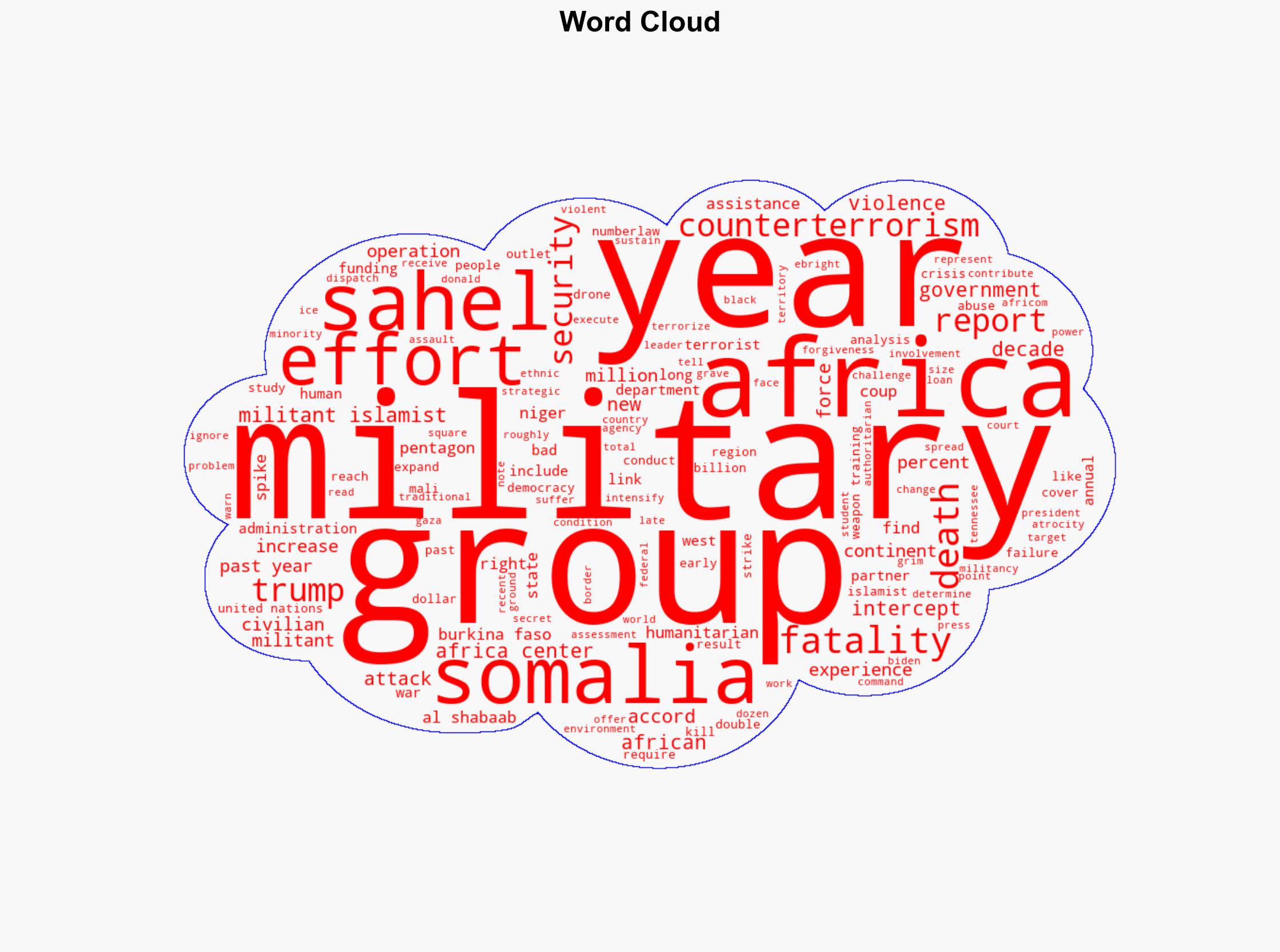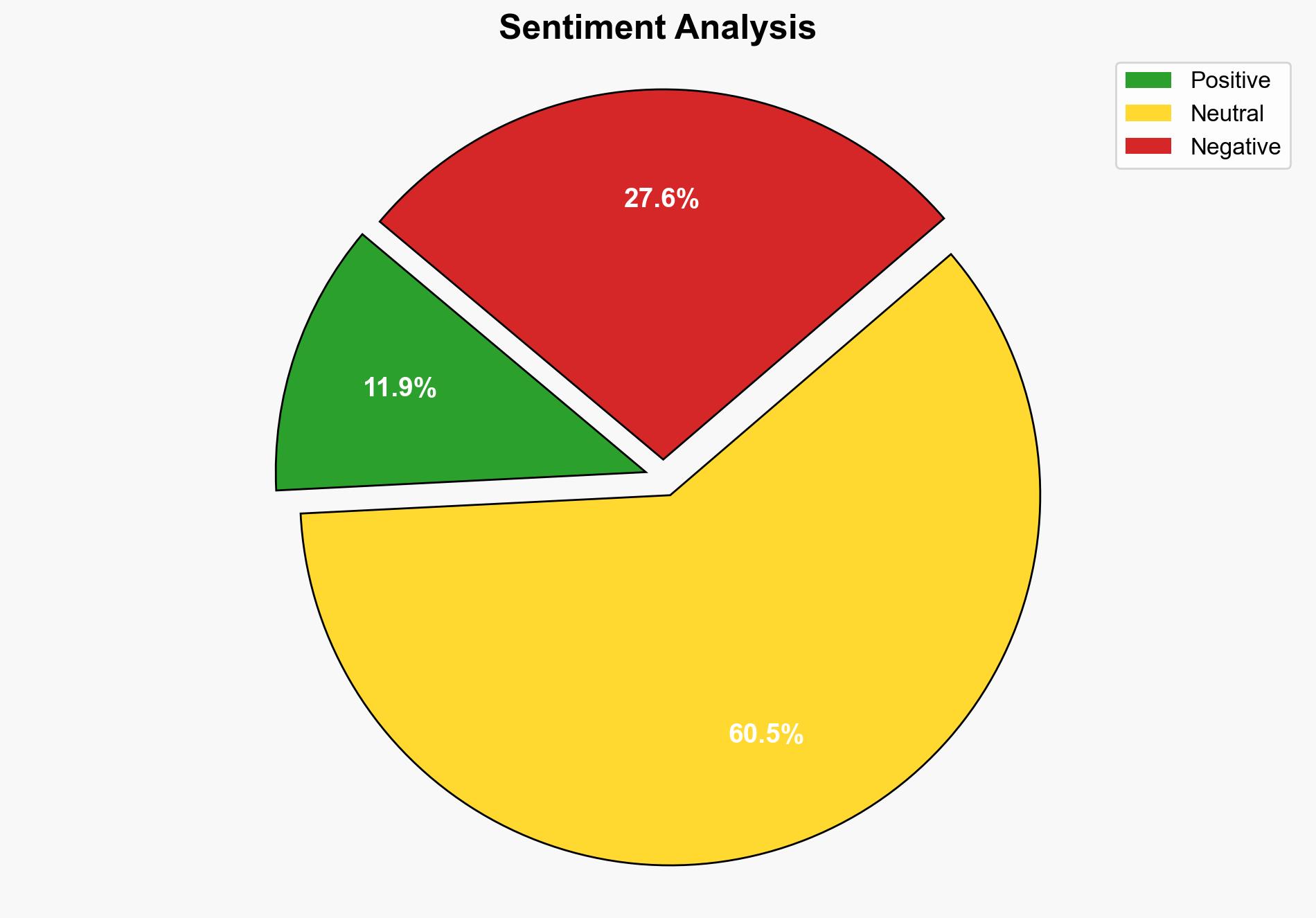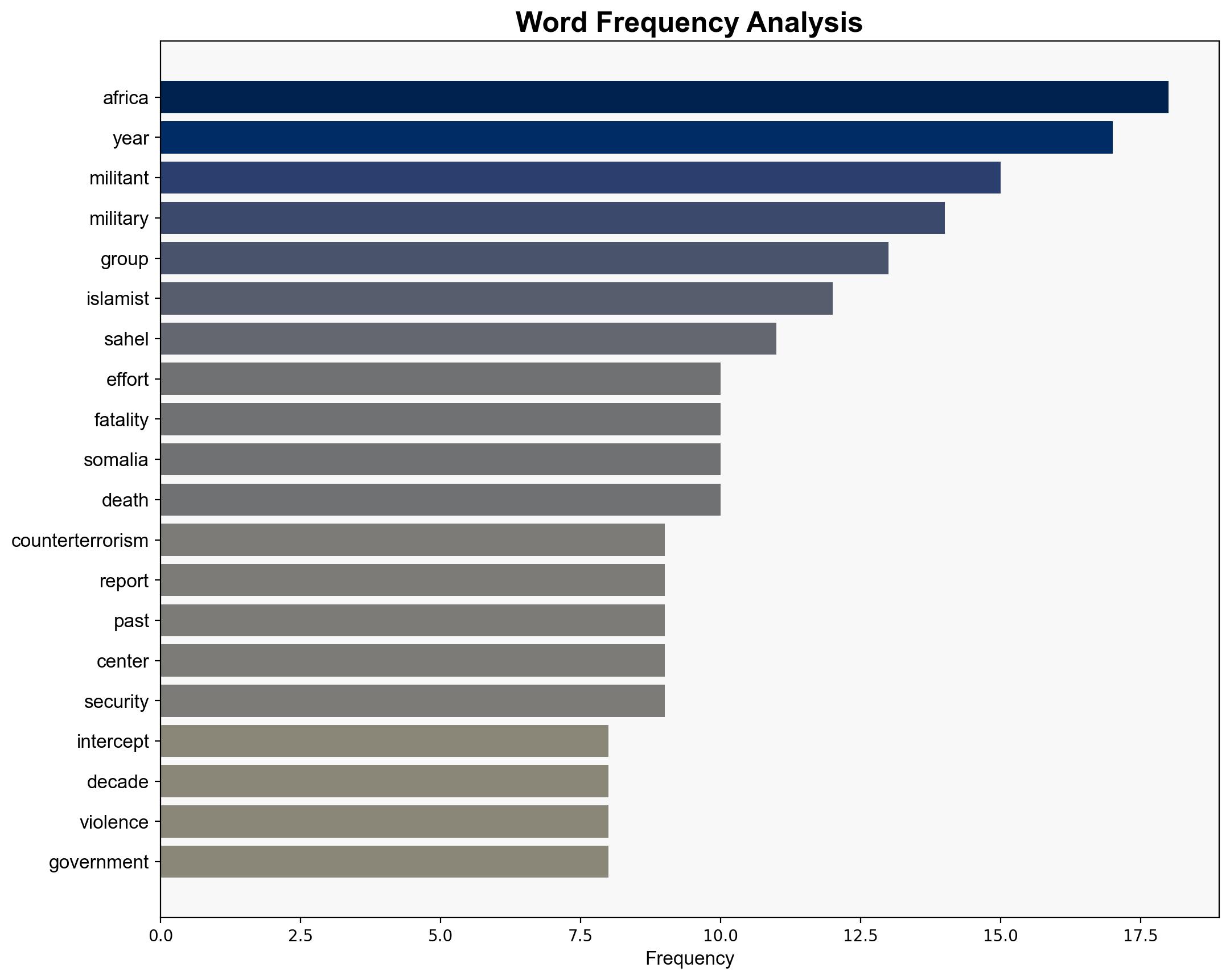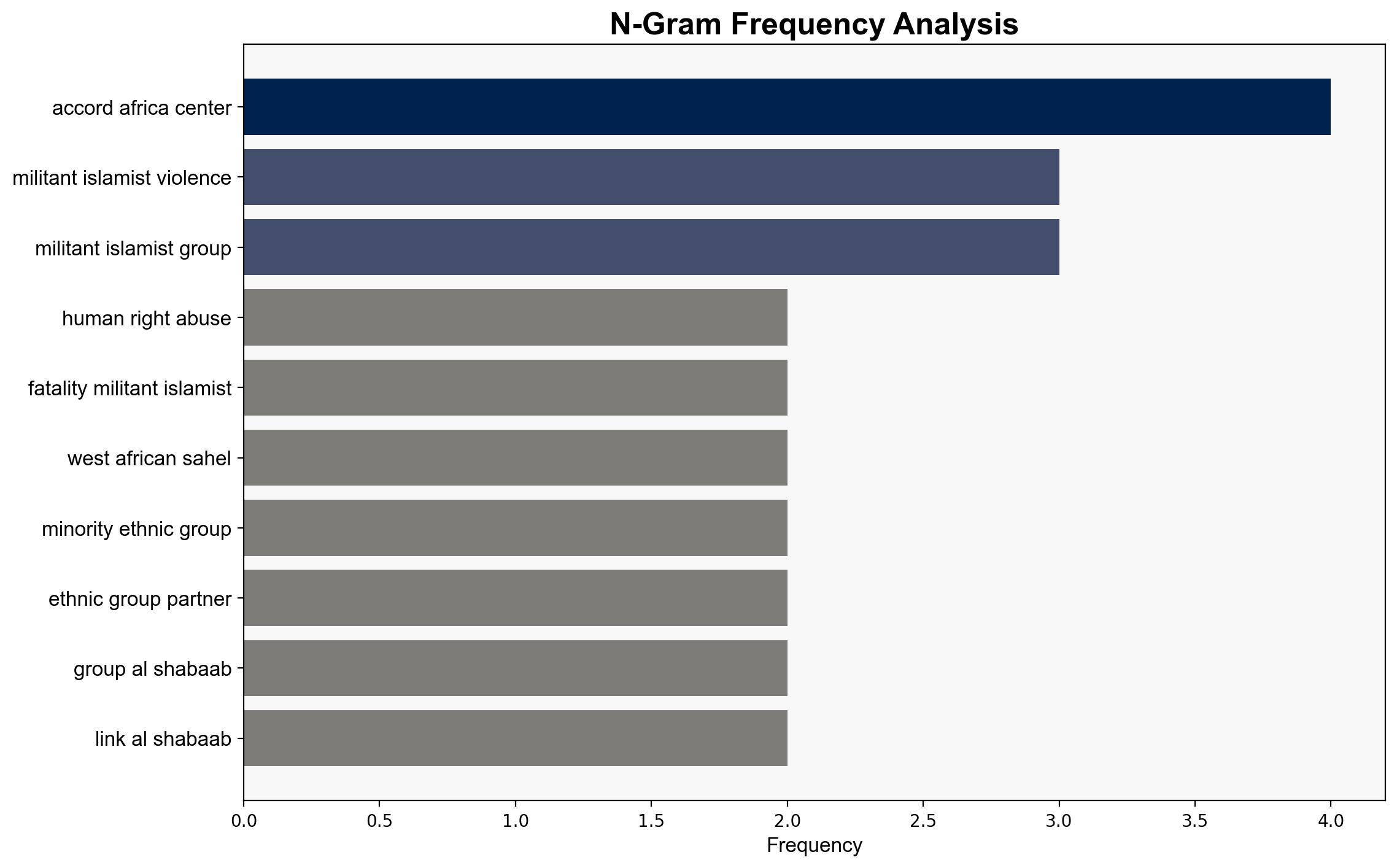Pentagon US Counterterrorism Efforts Have Failed Africans – The Intercept
Published on: 2025-08-05
Intelligence Report: Pentagon US Counterterrorism Efforts Have Failed Africans – The Intercept
1. BLUF (Bottom Line Up Front)
The analysis suggests a high confidence level that US counterterrorism efforts in Africa have not only failed to achieve their objectives but may have exacerbated instability and violence. The most supported hypothesis is that these efforts have inadvertently strengthened militant groups and increased civilian casualties. Strategic recommendation: Re-evaluate and redesign US counterterrorism strategies in Africa, focusing on non-military solutions and local partnerships.
2. Competing Hypotheses
1. **Hypothesis 1**: US counterterrorism efforts have failed due to a lack of understanding of local dynamics and over-reliance on military solutions, leading to increased instability and violence.
2. **Hypothesis 2**: The failure is primarily due to external factors such as regional political instability and socio-economic issues, with US efforts having a minimal impact on the overall situation.
Using ACH 2.0, Hypothesis 1 is better supported by the evidence, including the increase in militant activity and civilian casualties linked to US operations, as well as the acknowledgment of fundamental flaws in military strategies.
3. Key Assumptions and Red Flags
– **Assumptions**: Hypothesis 1 assumes that military interventions are inherently flawed without local context understanding. Hypothesis 2 assumes regional issues are the primary drivers of instability.
– **Red Flags**: Potential bias in reports due to political agendas. Lack of comprehensive data on local socio-economic conditions and their impact on militancy.
– **Inconsistent Data**: Discrepancies in reported fatalities and the scope of militant control.
4. Implications and Strategic Risks
The continuation of current strategies could lead to further destabilization, increased anti-US sentiment, and the expansion of militant territories. There is a risk of spillover effects into neighboring regions, potentially affecting global security and economic interests. The psychological impact on local populations could foster long-term resentment and radicalization.
5. Recommendations and Outlook
- Shift focus to intelligence-led operations and community engagement to address root causes of militancy.
- Enhance collaboration with African Union and regional bodies for a unified approach.
- Scenario Projections:
- Best Case: Successful integration of local governance and economic development initiatives reduces militant influence.
- Worst Case: Escalation of violence leads to regional conflict and humanitarian crises.
- Most Likely: Continued instability with sporadic successes in reducing militant activities.
6. Key Individuals and Entities
– Stephanie Savell, Director, Cost of War Project, Brown University
– Africa Command
– Militant groups: Al Shabaab, Islamic State
7. Thematic Tags
national security threats, cybersecurity, counter-terrorism, regional focus





